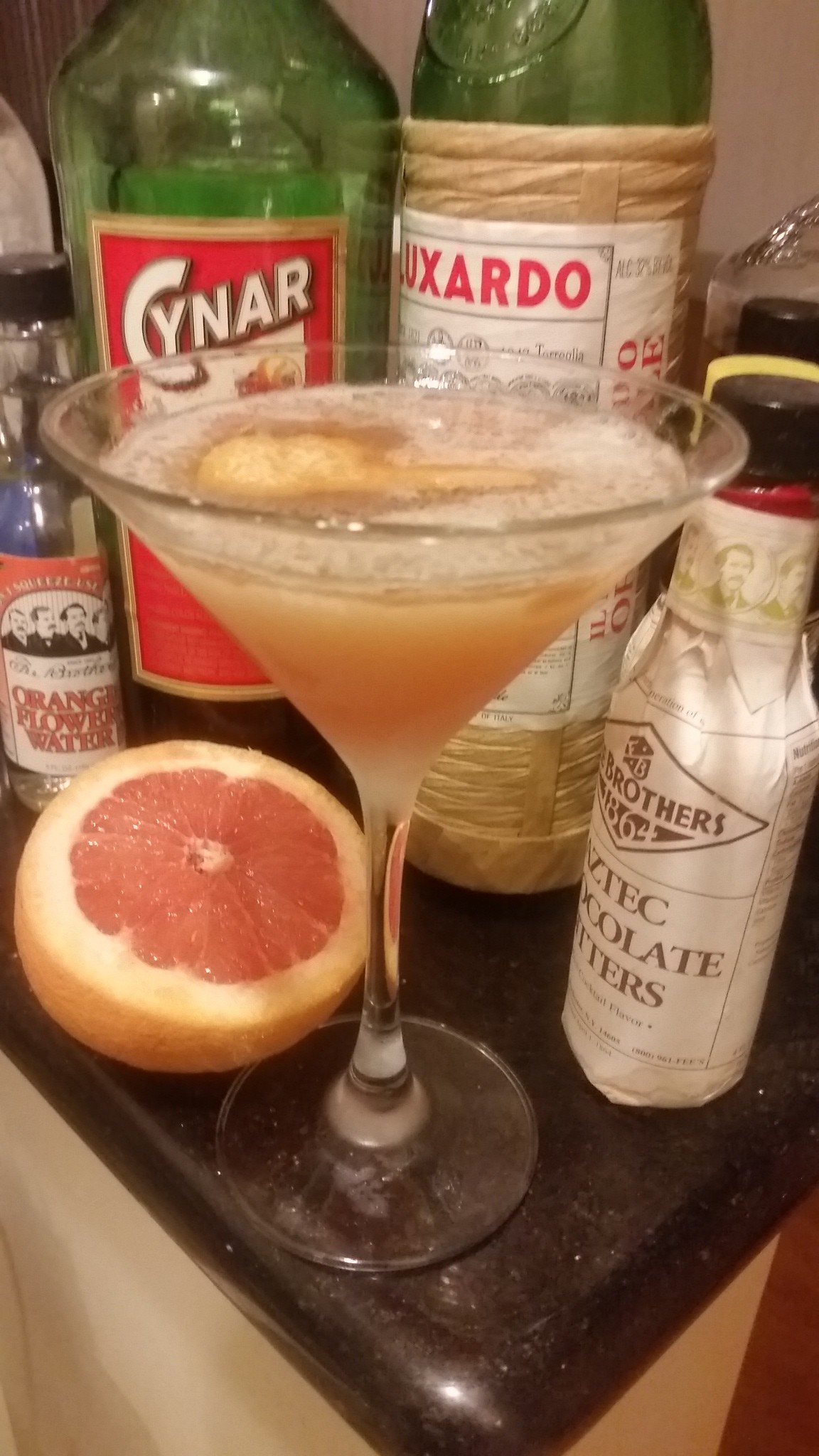Drink of the Week: Buona Sera, Mrs. Campbell (TCM Fest Salute #4)
 A truly smart and well-written sex comedy is a thing of beauty and not an everyday occurrence — rare in the past and rarer still in the present. Indeed, my film-besotted compatriots and I had relatively modest hopes for Melvin Frank’s 1968 near-farce, “Buono Sera, Mrs Campbell,” at this year’s TCM Fest. For the most part, we were expecting an entertaining but possibly rather routine 1960s romp and were there largely to check out its legendary star. That would be Italian bombshell-turned photographer and sculptor Gina Lollobrigida, a rather amazing woman on numerous counts who, at 88, still has a few thoughts on her mind and an innately humorous sensibility. The movie, much to our delight, turned out to be nearly as extraordinary as its star.
A truly smart and well-written sex comedy is a thing of beauty and not an everyday occurrence — rare in the past and rarer still in the present. Indeed, my film-besotted compatriots and I had relatively modest hopes for Melvin Frank’s 1968 near-farce, “Buono Sera, Mrs Campbell,” at this year’s TCM Fest. For the most part, we were expecting an entertaining but possibly rather routine 1960s romp and were there largely to check out its legendary star. That would be Italian bombshell-turned photographer and sculptor Gina Lollobrigida, a rather amazing woman on numerous counts who, at 88, still has a few thoughts on her mind and an innately humorous sensibility. The movie, much to our delight, turned out to be nearly as extraordinary as its star.
It’s the story of an Italian single mother who finds herself suddenly in the embarrassing position of reuniting with three men from her war-torn past, any one of whom has pretty much an equal shot of being the father of her now grown-up daughter in those days well before the arrival of easy DNA testing. If the setup sounds familiar, it’s because the plot was appropriated — without credit, so far as I can tell — for the jukebox musical and film, “Mamma Mia.” The difference is that this version is funny, enjoyable and occasionally quite witty and heartfelt.
For my liquid tribute, I thought something with a certain diversity of ingredients that might have been consumed in both Italy and the U.S. was apt. Also, since the cast mixed actors known more for conventional light comedy and drama with burlesque-trained comic Phil Silvers and true thespian wildcards like Shelly Winters and Telly Savalas, a hodgepodge of ingredients seemed appropriate.
One ingredient I never considered, however, was Campbell’s Soup, which I guess would have been justifiable because the leading lady christens herself as Mrs. Campbell after her child’s fictitious American father, a deceased U.S. soldier whose last name happens to coincide with the conveniently packaged and internationally known food product.
Instead, I marched myself across the street to the Library Bar at the Hollywood Roosevelt, known for its bespoke cocktails. There, I described what I was looking for and was made a marvelous concoction by my ace bartender, who preferred only to be known as Paul. Alas, the bar’s policy forbade him sharing the proportions with me, so I had to do my best to recreate the cocktail at home. What follows, then, is an approximation, but like the film, it’s definitely better than you’d think.
Buono Sera, Mrs. Campbell
1 1/2 or 2 ounces Scotch (or bourbon, I suppose)
1/2 ounce fresh grapefruit juice
1/4 ounce Cynar
1/4 ounce Yellow Chartreuse
1/4 ounce maraschino liqueur
1 dash Peychaud’s bitters
1 dash Angostura bitters
1 dash chocolate bitters
1 dash orange flower water
1 grapefruit peel (very desirable garnish)
Combine all the liquid ingredients in a cocktail shaker and, naturally, shake vigorously. Strain into a chilled cocktail glass, add the grapefruit twist and salute the uncertainty which greets us whenever we combine a bunch of odd ingredients and hope for the best.
***
The original cocktail was, as I said, quite outstanding and, I must admit, I wasn’t quite able to replicate it at home. One change I did make, once it became clear that every version I tried turned out to be a hair too sweet for my taste, was switching out my bartender’s original choice of bourbon for Scotch, specifically Cutty Sark. For whatever reason, that’s the brand the characters in “Buono Sera, Mrs. Campbell” scarf on numerous occasions, and that seemed to help balance what can be a rather sweet, if happily complex and floral, cocktail. I’m sure other popular blended Scotch brands would work out about the same.
The main choice here, though, appears to be how much of your base spirit you want to use. If you like your drinks sweet and complex, use less. If you like your drinks slightly drier but a bit more straightforward, then more is more. In drinks, as in farcical comedies involving love, sex and parental imperatives, difficult decisions are often required.
Related Posts
Posted in: Food & Drink, Lifestyle, Movies, Vices
Tags: Buono Sera Mrs. Campbell, cocktails, Drink of the Week, Gina Lollobrigida, Happy Hour, TCM Fest





